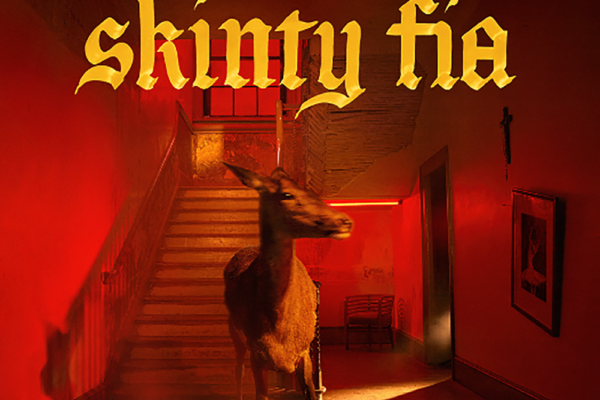3. It almost seems unfair to review an album that you’ve felt you’ve already reviewed two times before. But alas, Conor Oberst goes and releases essentially the same album as 2016s Ruminations as 2017s Salutations. What’s been added is seven songs and a massive backing band consisting of The Felice Brothers and Jim Keltner and guest spots from the likes of Jim James, Blake Mills, Maria Taylor, M Ward, Gillian Welch, Gus Seyffert, Pearl Charles, Nathaniel Walcott, and Jonathan Wilson. It is a who’s who of Oberst’s extended relations, old bandmates, tourmates, and anyone that knew any of the people in those first two groups.
The band here, with all its prestige, does exactly what a Conor Oberst backing band does. Going all the way back to Lifted when he put like eight people on drums, Obert has always had a way of pulling out fullness from a band. Back when he was 20, it was precocious, but now approaching 40, it is merely a talent he has. Here the band speaks to folk feel of the original songs. Some sound like Irish shanties, some like Cassadaga b-sides, while others roll along as straight rockers.
The accordion, an unlikely instrument on any record not a nostalgia act from the French Riviera or They Might Be Giants, works perfectly here. Courtesy of James Felice, it is the river of sweet sorrow that melds the whole album together. Without it, the album might not cohere into a single mass the way that the sparseness of Ruminations made it a “thing,” the same way Springsteen made it a “thing” on Nebraska.
Of the original ten songs that appeared on Ruminations, the band gives the album the sound of distance, as if Conor were singing from another room about another man. . When it was just him and a guitar or piano, it was like Conor Oberst was singing, maybe not right to you, but the microphone was confessional booth. This was certainly the strength of many of those songs. This isn’t necessarily a bad thing either way, for anyone that’s obsessed over Dylan’s bootlegs know there’s a more intimate version of Blood on the Tracks floating around out there—that can be found (*Cough New York tapes *Cough)—but no one will ever suggest that BOTT is a failure for this.
What the lyrics do is reminiscent of another Dylan: “I had to rearrange their faces, and give them all another name.” When he says “my wife” or alludes to the relationship, here they seem like they could be about anybody, the kids that drowned in the pool on “Counting Sheep” could be anybody, or as he semi-reveals later, it could be him. And that makes this just as much a Bright Eyes album as a solo Conor Oberst album.
That’s still the hope for many of Oberst’s fans. The masses are still waiting for the next Bright Eyes album, but they might keep on waiting. This, like so many of his other solo albums, approaches something of his former heights, but it seems like he’s continually running away from that. It was doubtful that there’d be a Born in the U.S.A. around the corner of his Nebraska, but psychologically, from the lyrics, it seems like it’s a miracle that he’s even releasing material at this point. Personally, I just hope he’ll be ok.
Article: Christopher Gilson
Cover Image: Jenna Petrone




